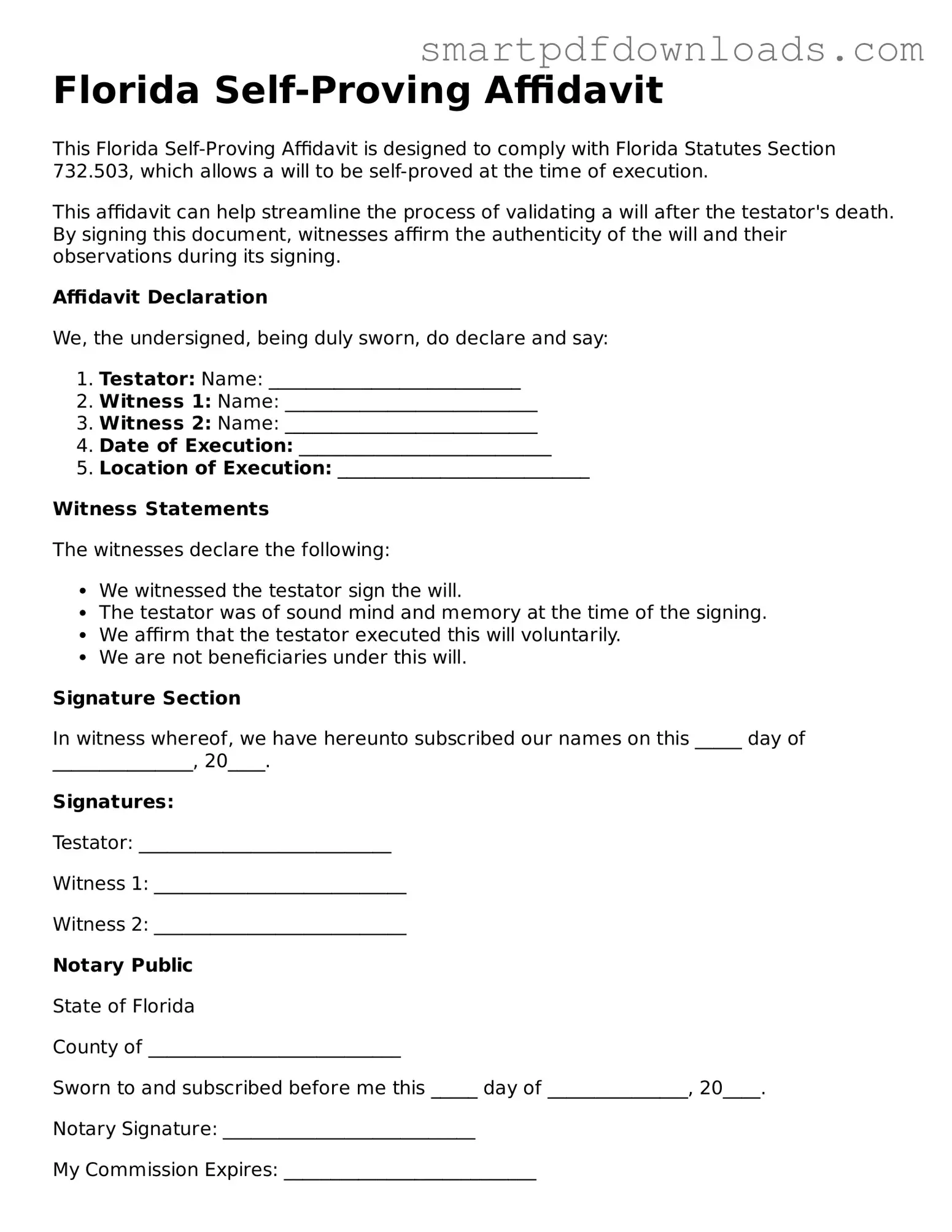Legal Self-Proving Affidavit Form for the State of Florida
The Florida Self-Proving Affidavit is a legal document that allows a testator's will to be validated without the need for witnesses to testify in court. This form streamlines the probate process, making it more efficient for the executor and beneficiaries. By executing this affidavit, individuals can enhance the credibility of their testamentary intentions.
Edit Self-Proving Affidavit Online

Legal Self-Proving Affidavit Form for the State of Florida
Edit Self-Proving Affidavit Online

Edit Self-Proving Affidavit Online
or
⇓ PDF File
Finish the form and move on
Edit Self-Proving Affidavit online fast, without printing.